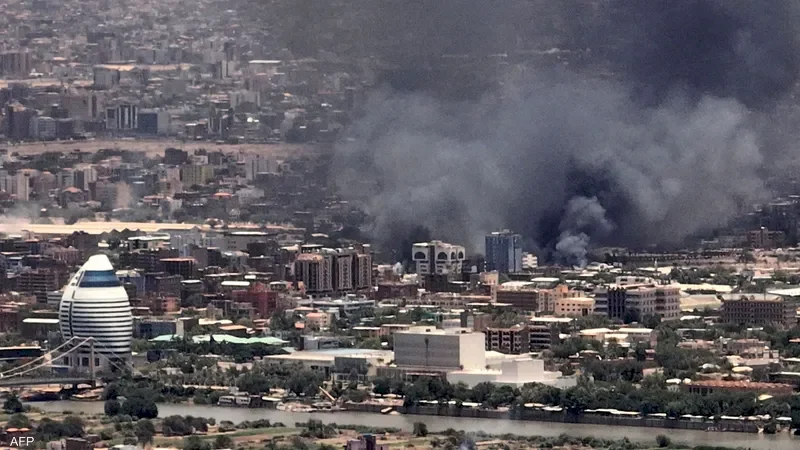
The Fate of the Ceasefire in Sudan Remains Unclear.. Eyes on Kordofan
SadaNews - Despite the announcement by the Rapid Support Forces led by Mohamed Hamdan Dagalo, that they agree to a proposal for a temporary humanitarian ceasefire in Sudan, it does not seem that the ongoing war for more than two years between these forces and the Sudanese army is nearing its end, with continuing reports of violence in various areas.
The army-backed government has not yet responded to the proposal from international mediators regarding a humanitarian ceasefire.
Meanwhile, experts have expressed doubts about whether the Rapid Support Forces are really ready to implement the ceasefire, warning that they are actually preparing to launch an attack to seize the city of Al-Obeid, according to reports by France Presse.
"Recapturing Kordofan"
In this context, Cameron Hudson from the Center for Strategic and International Studies based in Washington expressed that "the only aim of the Rapid Support Forces in accepting the ceasefire is to divert attention from the atrocities committed in Al-Fasher and to present themselves as more responsible than the army."
He added that the army, led by Abdel Fattah al-Burhan, is now "focusing on regaining full control of Kordofan and then advancing towards Al-Fasher."
Hudson considered that "the Rapid Support Forces, having now taken control of all of Darfur, have an incentive to try to bring food and aid into the areas under their control, but the army has an incentive not to allow the Rapid Support Forces to reinforce their gains."
The Rapid Support Forces Tighten Their Grip on Darfur
The Rapid Support Forces took control of the city of Al-Fasher less than two weeks ago, which was the last major stronghold of the army in the Darfur region of western Sudan.
The fall of Al-Fasher has allowed the Rapid Support Forces to tighten their control over the capitals of Darfur’s five states as well as parts of the south, while the army maintains control over Khartoum and the northern, eastern, and central regions along the Nile River and the Red Sea.
Although a relative calm has prevailed in Khartoum since the army took control of it in the spring of this year, the Rapid Support Forces continue to launch attacks in several areas.
Fighting in Kordofan
In the south, skirmishes have been ongoing in Kordofan for several days. The city of Delling, which is besieged by the Rapid Support Forces in South Kordofan, witnessed fierce bombardments last Thursday.
Delling is located about 150 kilometers southwest of Al-Obeid and is a major crossroads connecting Darfur to Khartoum. However, the city has become, according to the Integrated Food Security Phase Classification, at risk of famine.
The capital of the state, Kadugli, is also facing the threat of famine. It is noteworthy that South Kordofan, located on the border with South Sudan, is one of Sudan's richest regions in resources, containing the Heglig oil field, one of the largest in the country.
It is important to note that the war between the army and the Rapid Support Forces broke out in mid-April 2023, leading to the deaths of thousands and the displacement of nearly 12 million Sudanese.

Wide Russian Attack on Kiev and Ukraine Prepares for Air Operations

An American Judge Prevents the Trump Administration from Detaining a British Activist Oppo...

North Korean Leader Orders Increase in Missile Production for 2026

America Launches Strong Strike Against ISIS in Northwestern Nigeria

The Japanese Government Approves a Record Defense Budget Aimed at Deterring China

Turkey Sends the Black Box of the Mourned Aircraft to a Neutral Country

Two Martyrs in Israeli Attack Targeting Vehicle in Southern Lebanon

